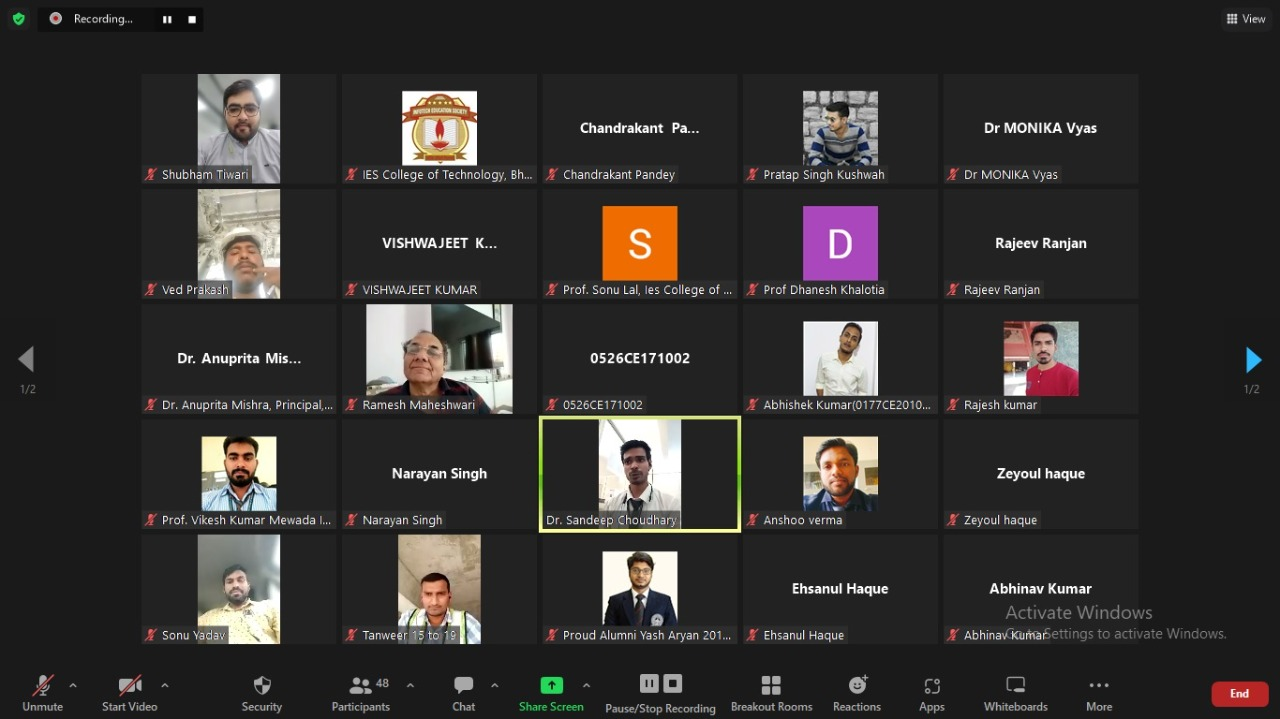Course Overview
| Degree | Program | Sanctioned Intake |
| Bachelor of Technology(B.Tech) | Civil Engineering | 120 |
| Diploma in Civil Engineering(2nd Shift) | Civil Engineering | 60 |

Department of Civil Engineering was established in 2009 in IES College of Technology and under- graduate course started with initial intake of 30 students. The intake was increased to 120 in 2016 due to excellent results obtained. Department of Civil Engineering is working with the objective to enable the students to acquire scientific knowledge, as well The B.Tech graduate program in Civil Engineering envisages to provide students with a good understanding of Civil Engineering solutions in a global, societal and environmental context, consistent with the principles of sustainable development. The course will make the students capable in identifying, formulating and solving civil engineering problems that meet specified performance, cost, time, safety and other quality needs and objectives with professional and ethical responsibility.
To create technocrats in the field of Civil Engineering through an effective teaching-learning process, to make them competent in futuristic analytical design and construction skills with professional ethics for better employability.
To impart design and construction skills to the students through effective teaching and learning process.
To assure the availability of intellectual assets in terms of qualified faculties who are dedicated for the development of competent Civil Engineers.
To enhance human values in the students for the upliftment of society through motivational classes, field visits and extracurricular activities.
To make competent students for higher studies at Global level and to develop entrepreneurial abilities in order to improve their employability.
PEO 1: Work as Civil Engineering professional in the area of Structural design, Transportation Engineering, Geotechnical Engineering, Water Resources and Construction industries by applying fundamental and practical knowledge.
PEO 2: Engage in multidisciplinary works such as, higher education, or entrepreneurship by enhancement of in depth knowledge
PEO 3: Provide real life solutions to technical problems by enhancing human values among the students and encourage them to follow ethical practice.
Graduates will be able to
PSO-1: Ability to implement Strength of Material Structural Design Highway Engineering through analysis in accordance with Industry and infrastructure standards.
PSO-2: Develop capability to accomplish projects within timeline using advance construction techniques, equipment, and project management systems.
PSO-3: To incorporate technology to create solutions that address specific demands while taking into account global, environmental, and economic challenges using ethical practices.
PO-1: Engineering knowledge: Apply the knowledge of mathematics, science, engineering fundamentals, and an engineering specialization to the solution of complex engineering problems.
PO-2: Problem analysis: Identify, formulate, research literature, and analyze complex engineering problems reaching substantiated conclusions using first principles of mathematics, natural sciences, and engineering sciences.
PO-3: Design/development of solutions: Design solutions for complex engineering problems and design system components or processes that meet the specified needs with appropriate consideration for the public health and safety, and the cultural, societal, and environmental considerations.
PO-4: Conduct investigations of complex problems: Use research-based knowledge and research methods including design of experiments, analysis and interpretation of data, and synthesis of the information to provide valid conclusions.
PO-5: : Modern tool usage: Create, select, and apply appropriate techniques, resources, and modern engineering and IT tools including prediction and modeling to complex engineering activities with an understanding of the limitations.
PO-6: The engineer and society: Apply reasoning informed by the contextual knowledge to assess societal, health, safety, legal and cultural issues and the consequent responsibilities relevant to the professional engineering practice.
PO-7: Environment and sustainability: Understand the impact of the professional engineering solutions in societal and environmental contexts, and demonstrate the knowledge of, and need for sustainable development.
PO-8: Ethics: Apply ethical principles and commit to professional ethics and responsibilities and norms of the engineering practice.
PO-9: Individual and team work: Function effectively as an individual, and as a member or leader in diverse teams, and in multidisciplinary settings.
PO-10: Communication: Communicate effectively on complex engineering activities with the engineering community and with society at large, such as, being able to comprehend and write effective reports and design documentation, make effective presentations, and give and receive clear instructions.
PO-11: Project management and finance: Demonstrate knowledge and understanding of the engineering and management principles and apply these to one’s own work, as a member and leader in a team, to manage projects and in multidisciplinary environments.
PO-12: Life-long learning: Recognize the need for, and have the preparation and ability to engage in independent and life-long learning in the broadest context of technological change.

Dr. Monika Vyas
Head of the Department
Area of Specialization: Environmental Modeling Teaching Experience: 18+ years Professional Membership(s) : Institute of Engineers. Ph.D . 2013 from MANIT Bhopal M.Tech /M.E. Projects Guided : 20+ B.E. Projects Guided: 200+ Patent(s) Filed : Four filed , two published Interrnational books - 3 Publication in National and International Journals and International Conferences : 30 + Workshop/STTP Attended : 20 + Consultancy – UNICEF , Ministry of Tourism 1st Foreign Visits (Presented a research article at Stockholm world water week 2015 Sweden) 2nd Foreign Visits Young Environmental scientist 2014 at Paris.
| Degree | Program | Sanctioned Intake |
| Bachelor of Technology(B.Tech) | Civil Engineering | 120 |
| Diploma in Civil Engineering(2nd Shift) | Civil Engineering | 60 |
|
Academic Year |
2021-22 |
20-21 |
19-20 |
18-19 |
17-18 |
Total |
|
FDPs/ Workshops /Expert Lectures Organized |
02 |
02 |
06 |
03 |
05 |
16 |
|
Seminars and Webinars |
05 | 09 | 10 | 06 | 05 | 30 |
|
Expert Lectures From IIT/NIIT |
04 | 04 | 03 | 02 | 02 | 11 |
|
Industrial Visits |
03 | 04 | 00 | 02 | 05 | 11 |
|
Technical Skill Training Programs for Student |
02 | 02 | 02 | 03 | 02 | 09 |
Hydraulic Robot
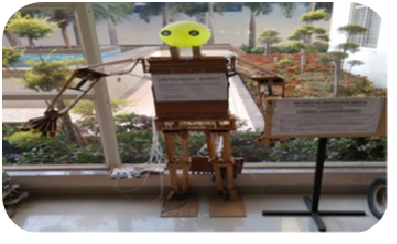
Go-Kart Vehicles
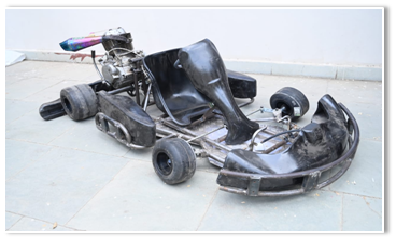
Truss Bridge
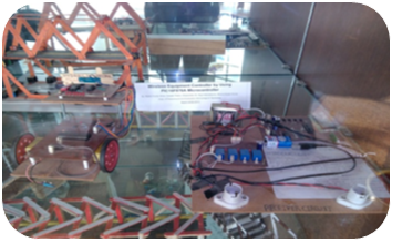
Umbrella Bridge
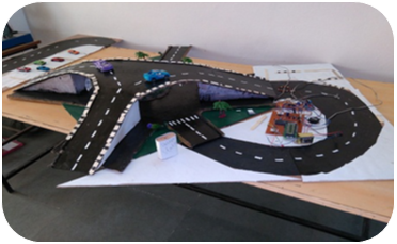
TRANSPOTATION ENGINEERING LAB

FLUID MECHANICS LAB

STRENGTH OF MATERIAL LAB

GEO TECH LAB

GEOLOGY LAB

SURVEYING LAB

4th & 6th Semester Students Visit Water Treatment Plant

6th Semester Students Visit Rani Kamlapati Railway Station

4th Semester Students Visit Kolar Dam

4th & 6th Semester Students Visit Kolar Dam
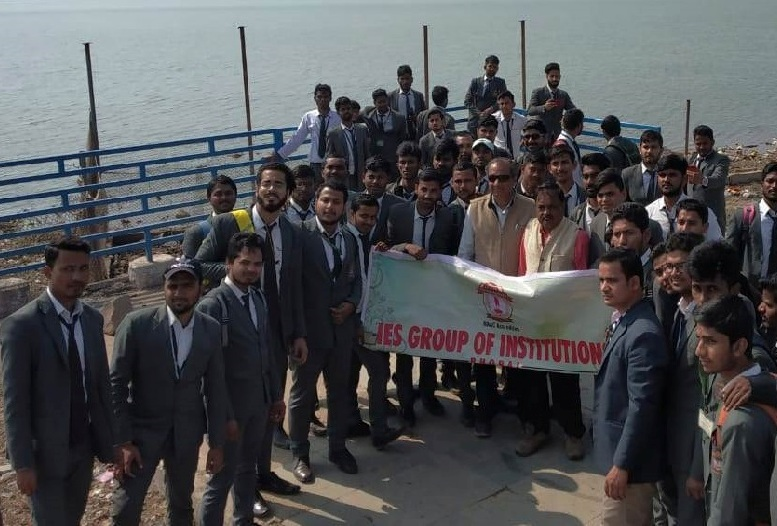
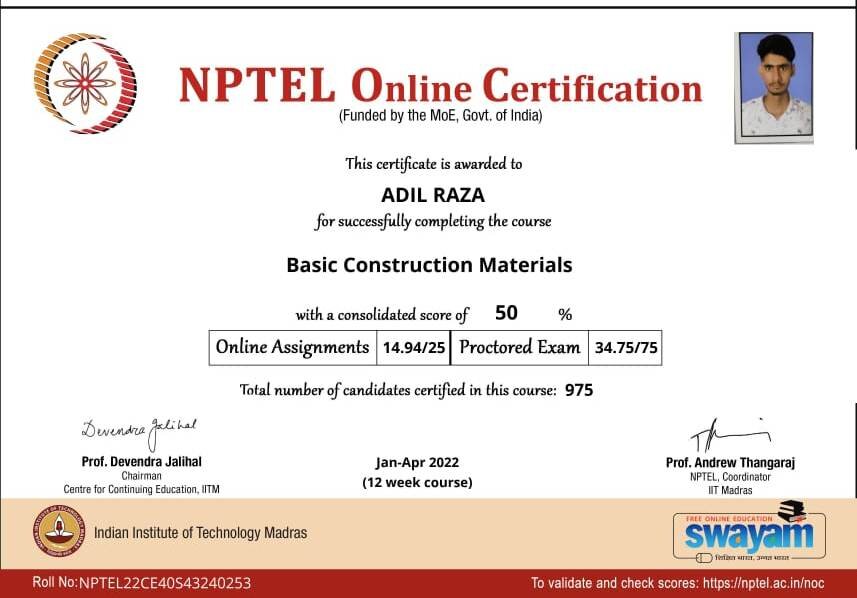
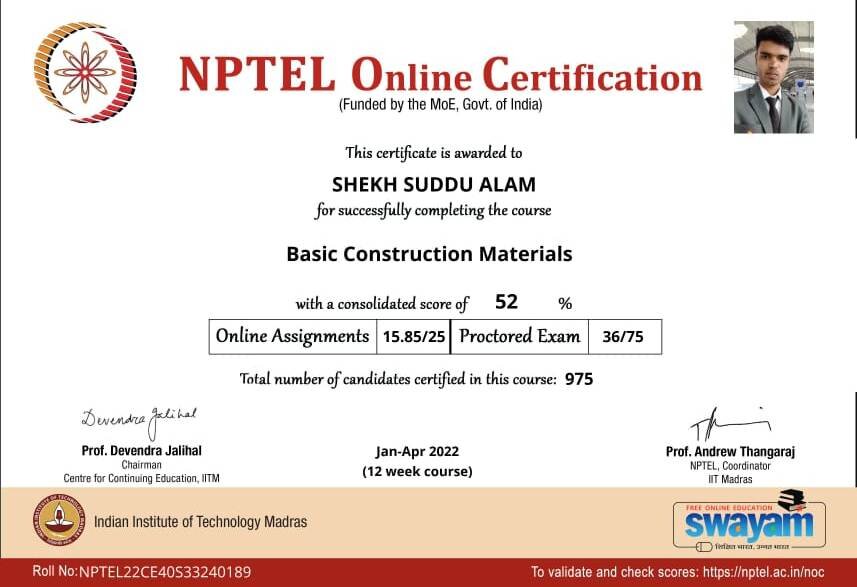
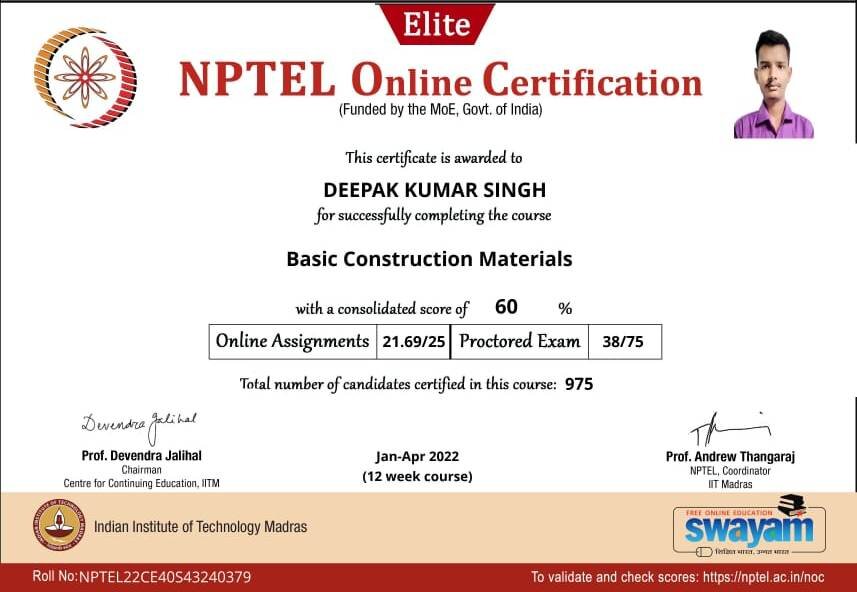
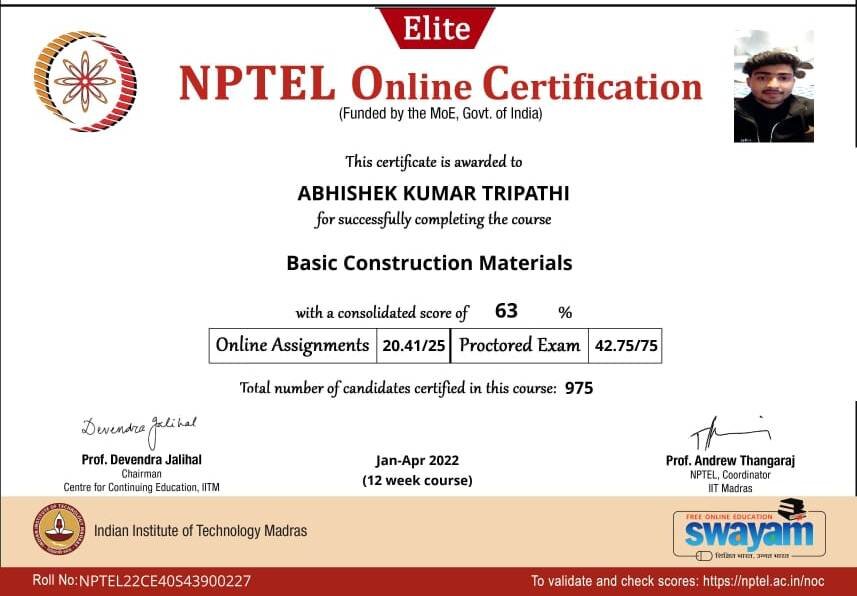
Yash Aryan (B.Tech, 2016 Batch ) Received Distinguished Alumni Award from H.E. Governor of Madhya Pradesh on 31/03/2022
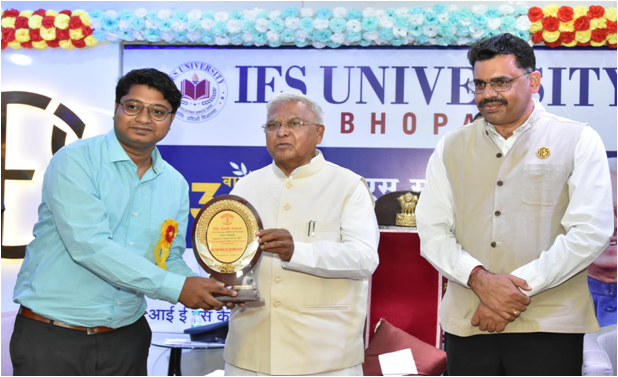
Kartik Malviya (B. Tech, 2018 Batch) is awarded with Chancellor Scholarship from RGPV
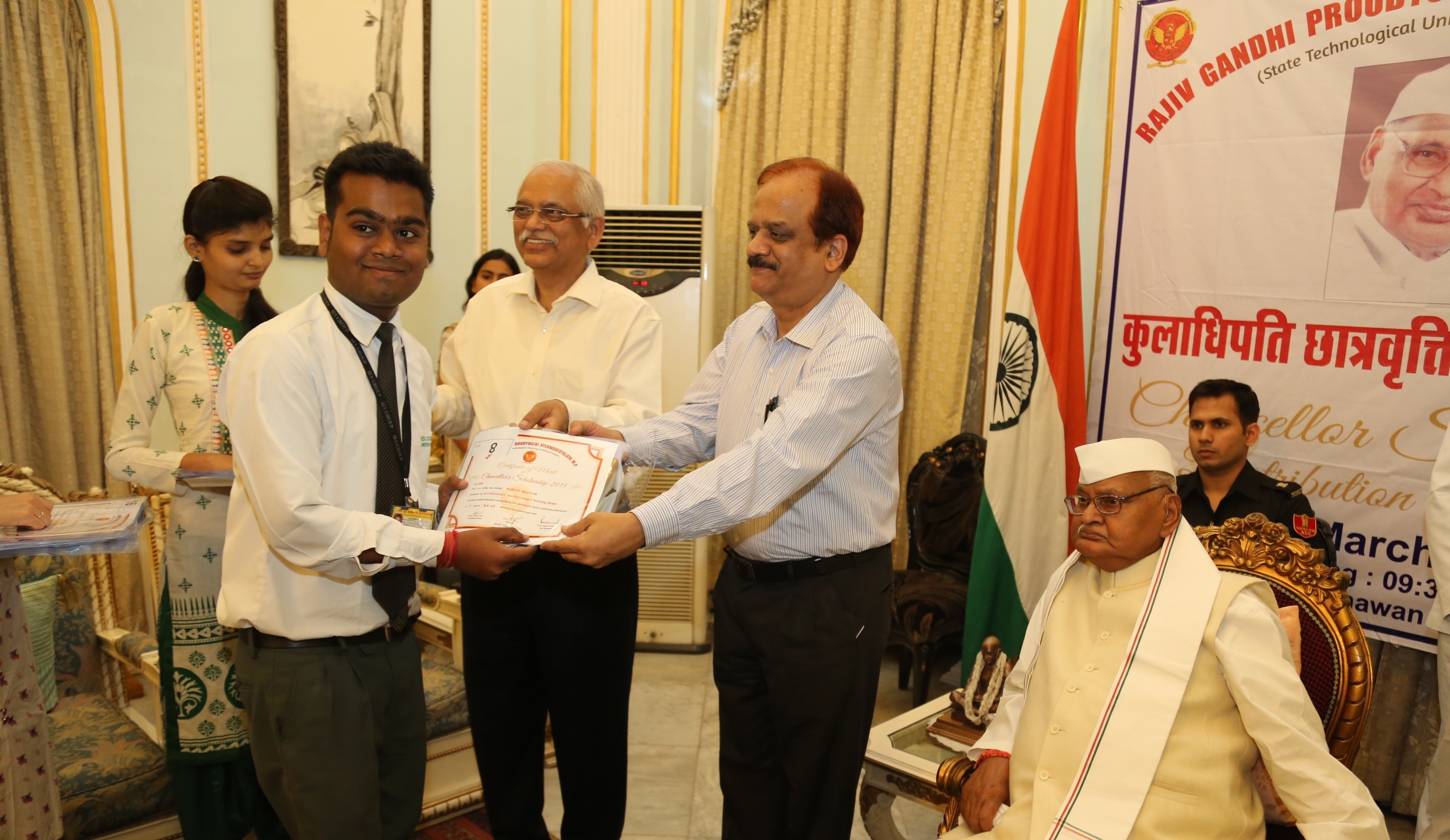
Alumni Meet Pune Chapter

Alumni Meet Banglore Chapter
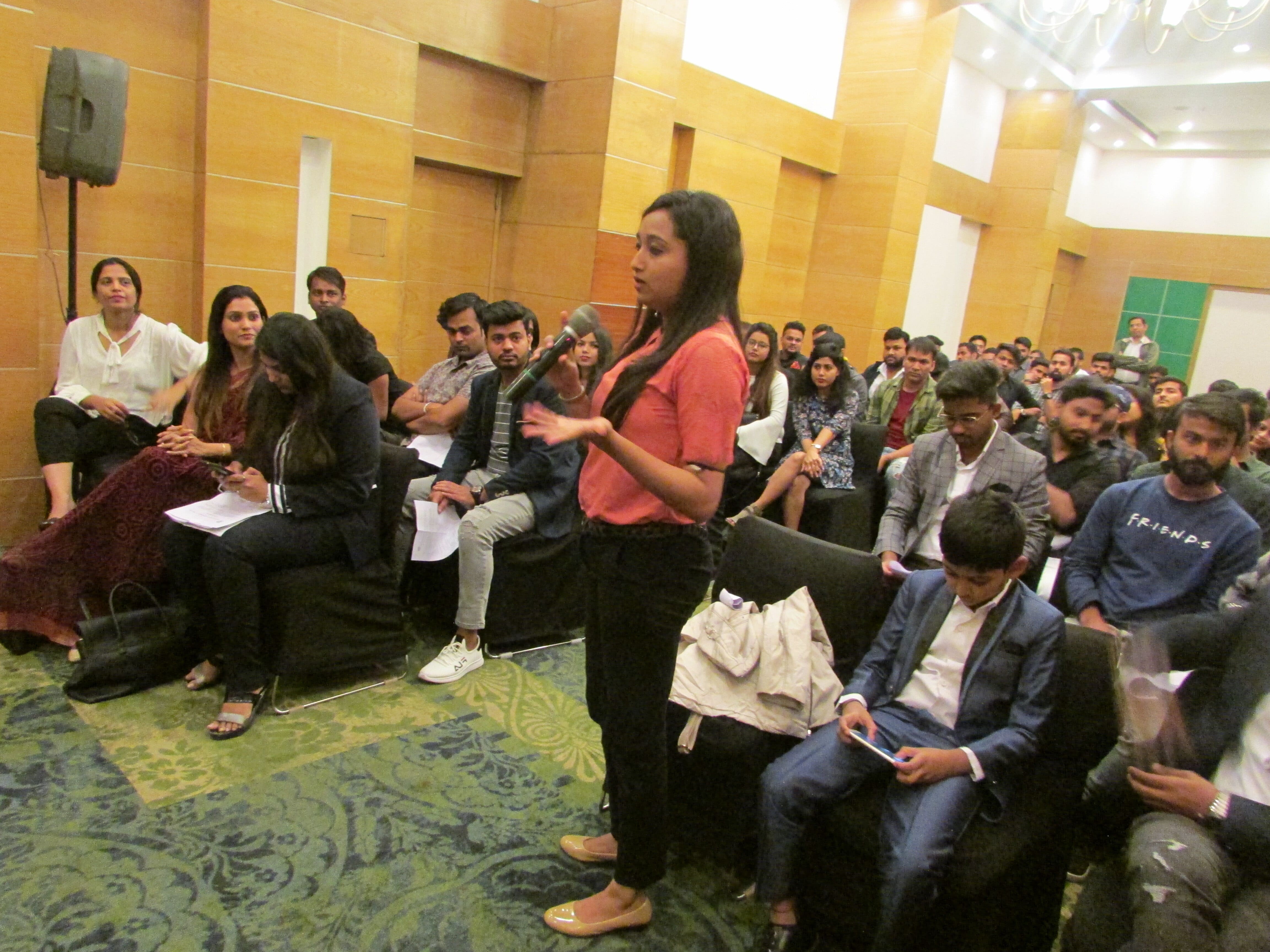
Virtual Alumni Meet
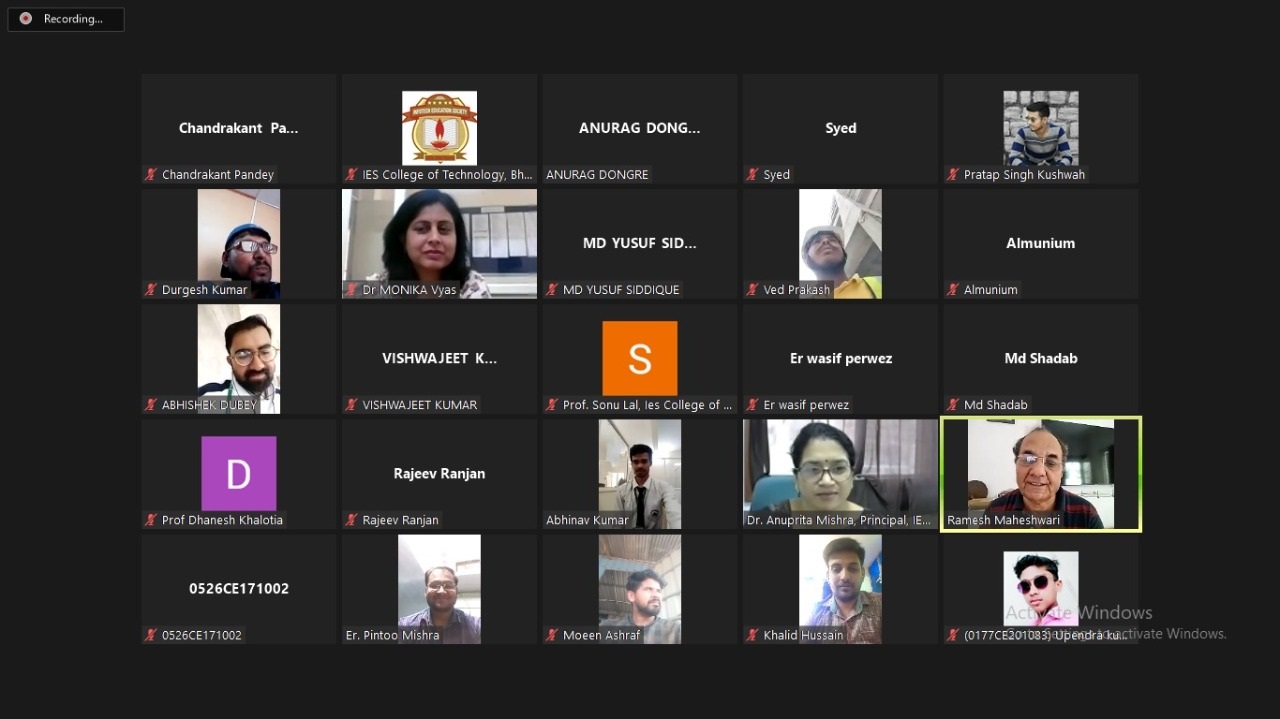
Virtual Alumni Meet
